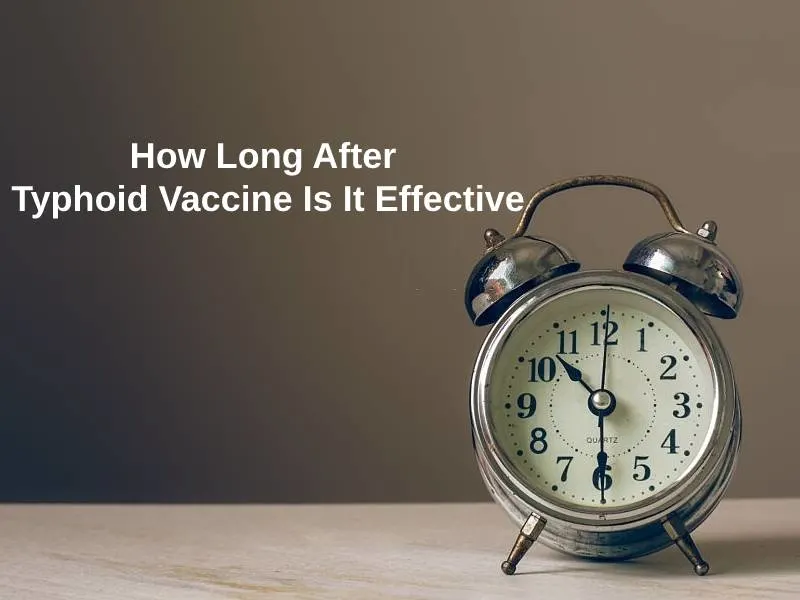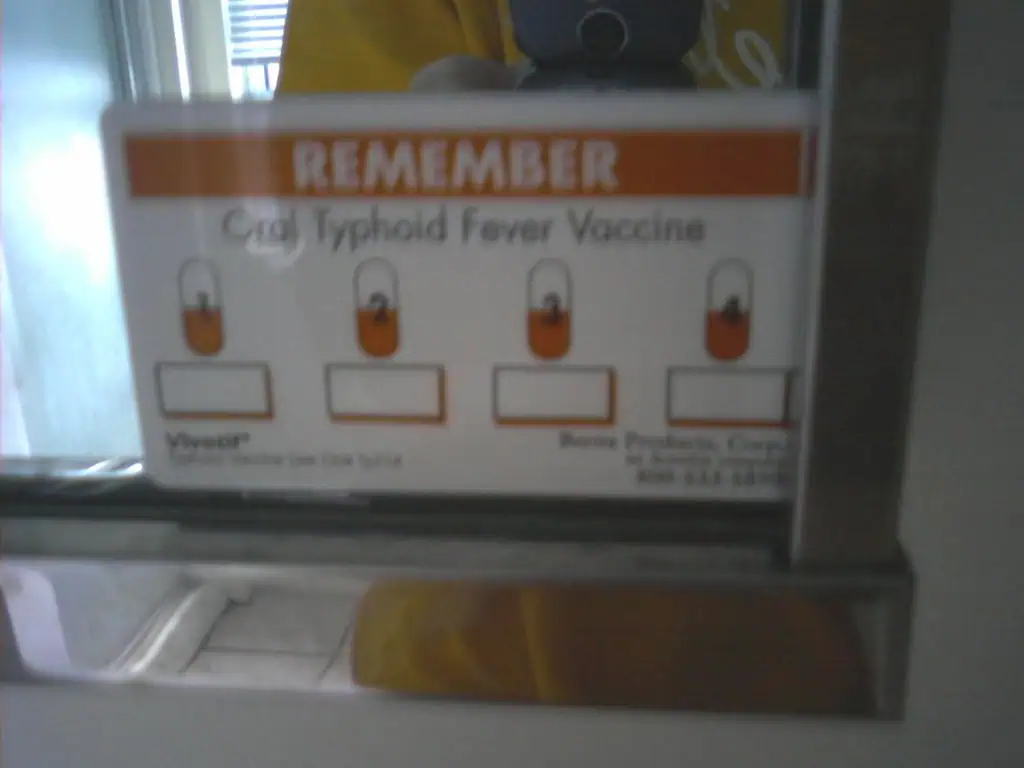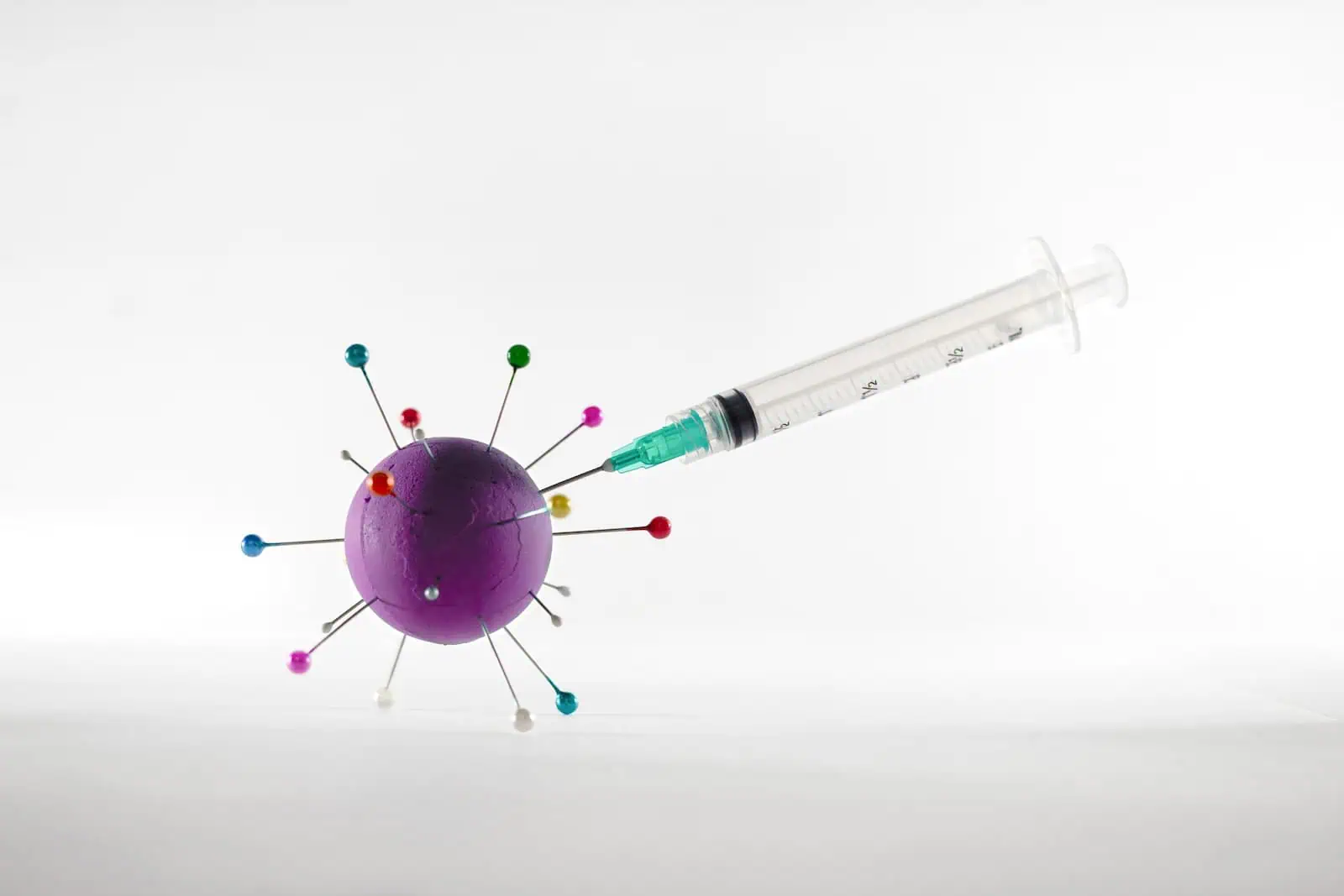Exact Answer: 2 weeks
Typhoid vaccine prevents typhoid fever. Typhoid is a contagious bacterial infection. When someone eats or drinks contaminated food, the virus multiplies and enters into the bloodstream of the person causing typhoid fever. Vaccines are very essential to save you from any further danger. The fatality rate of typhoid is 10 to 30% but it is reduced to 1 – 4% in case of vaccination. Typhoid left untreated for several weeks is highly deadly. However, the typhoid vaccine is not 100% effective, which means you still have to be careful about what you eat or drink.

How Long After Typhoid Vaccine Is It Effective?
There are two types of typhoid vaccines. Depending on which one suits you the best, your health provider administers you with it.
| Vaccine | Shows its Effectiveness in |
| Inactivated Typhoid Vaccine | At least two weeks |
| Live Typhoid Vaccine | At least a week |
Typhoid vaccines show their effectiveness after two weeks of vaccination. A typhoid vaccine protects you for a period of three years from typhoid fever. Typhoid vaccines are administered to you either when you have typhoid fever or when you’re traveling.
Inactivated Typhoid Vaccine has to be taken at least two weeks before traveling. It may be given to people that are of two years and older. For vulnerable people, it is recommended that they are given the vaccine every two years to remain in the risk-free zone.
Live Typhoid Vaccine is administered by the mouth. This is given to people that are 6 years and older. A total of 4 capsules are given, each one day after another. The 4th capsule has to be given at least a week before traveling. A booster vaccine is to be administered once every 5th year for people who remain at risk.

Sometimes, after the administration of the vaccine, you could encounter allergic reactions such as swelling of the face or throat, difficulty in breathing, increase in heartbeat, dizziness, or weakness, in that case, you are highly recommended to contact your health care provider or reach to the nearest hospital immediately.
Why Does it Take So Long for the Typhoid Vaccine to Work?
Typhoid vaccines work by stimulating your body by creating antibodies or infection-fighting proteins that help you in preventing typhoid bacteria and help you from not getting typhoid again. Basically, just like any other vaccine, the typhoid vaccine prepares antibodies in your body. Your body takes time to prepare these antibodies that save you from the infection.
There are two types of vaccine so far for typhoid. The oral vaccine and one vaccine that is injected. It is important to note that these vaccines are not 100% effective and that you still have to be careful when you travel. When exposed to more typhoid bacteria, the vaccine is only 85% effective. The oral vaccine must be taken with lukewarm water for it to work the best. The injective vaccine is given just once in your thigh or upper arm. Both these vaccines take some time to create antibodies in the human body that can fight typhoid bacteria.
Some people are advised not to take the vaccine and some people develop the need to get vaccinated again because the effect of the vaccine fades over the years. Re vaccination is done once in three years.

People with high fever or temperature have to wait before getting the vaccine to get immunized. Typhoid vaccines may cause anaphylactic reactions to some and therefore these people need to stay away from the vaccine.
The typhoid vaccine takes up to 3 weeks in creating the antibodies and protecting you from the bacteria.
Conclusion
You cannot keep your guard low after getting the typhoid vaccine. A vaccine is only going to lessen the fatality rate of the infection and not stop it. Anyways, suggest that a single dose of vaccine is 87% effective and a double dose gives you complete protection. Anybody that has had an allergic reaction the last time they were administered with the vaccine, shouldn’t take it again. Anyone that has an allergy to any of the components being used in the vaccine shouldn’t take it either. Typhoid is dangerous if left untreated, but with the right intervention, it can be cured.